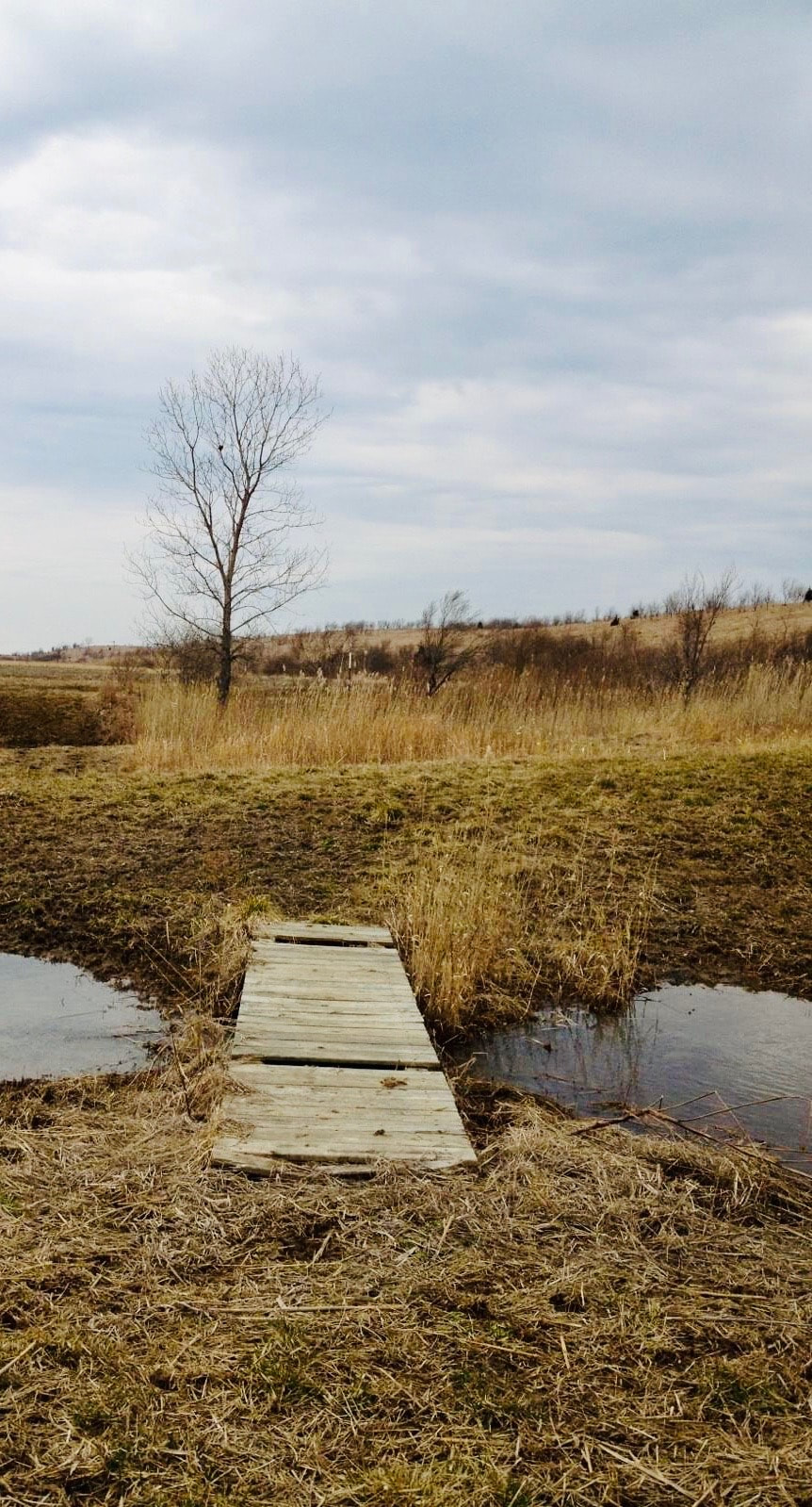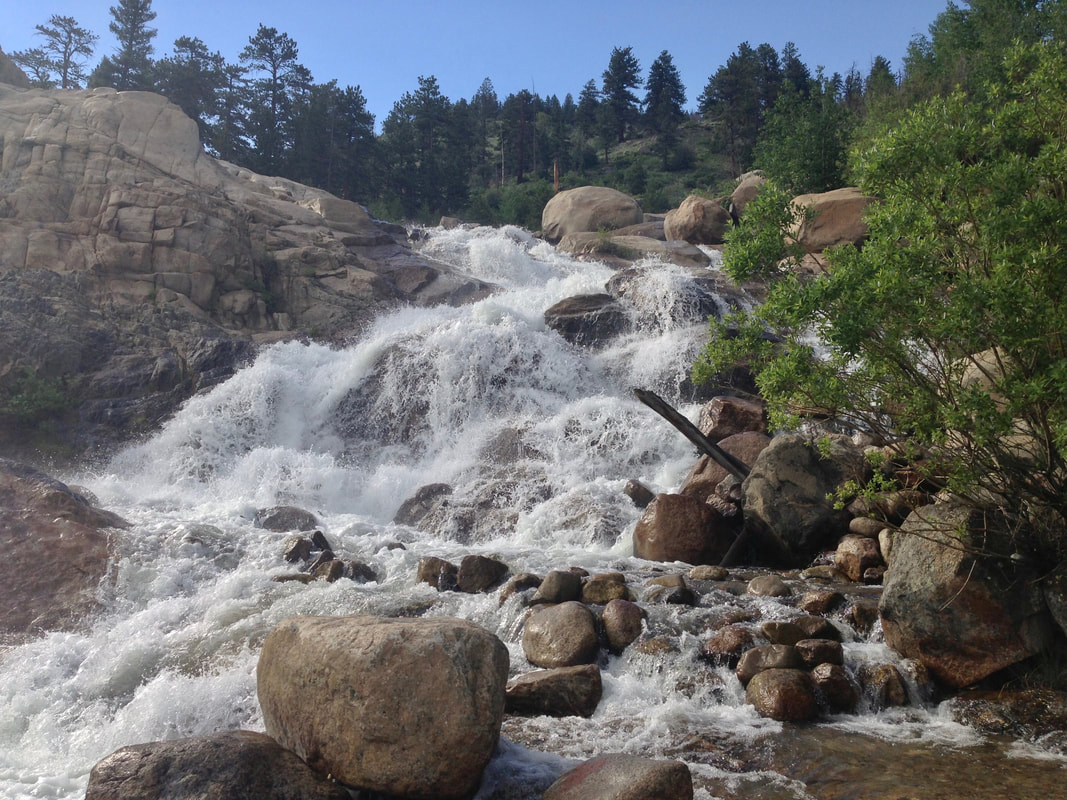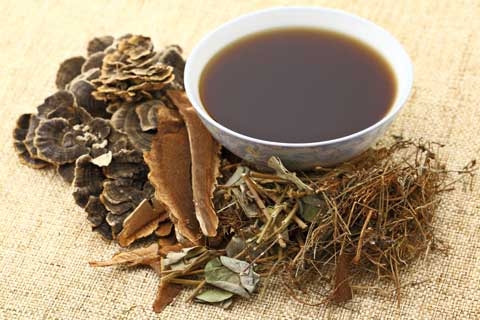|
Note: This is an edited version of a blog with the same title, originally published on March 6, 2019 by Ted Hall, L.Ac., founder of Kototama Acupuncture in Boulder, CO. The original post can be read here.
How can we make the practice of meditation part of our daily lives? Perhaps we don't need to worry so much about trying to understand it, but instead we should focus our energy on removing the supposed barriers that are in our way. While it is likely you've at least heard the word meditation before, it is just as likely that it is a foreign practice to you. Depending on your level of experience with meditation, you may even choose to call it by a different name -- breathing exercise, quiet time for recharging, etc. Regardless of what you call it or how you practice it, a very important aspect to meditation is mindfulness -- awareness of whatever is happening in the present moment without judging, clinging, or averting. Stripping away any religious or ideological connotations that may seem to be implied by the practice of meditation, let's take a look at what it is all about from a foundational and practical point of view. In simple terms, meditation is the access point to the peace that we all need and crave. It is a way of understanding and seeing through the patterns of thought and behavior that do not serve us so well. Along with eating, sleeping, and exercising, it is one of the most nourishing things that we can do for ourselves. Yet, for many of us meditation gets put on the back burner most days. There aren't any reasons not to meditate. Okay, well, there are plenty that we have came up with, but they all suck. You've probably heard the saying, "You should meditate for 20 minutes per day, unless you don't have time, and in that case you should meditate for an hour." Not having time is exactly why we should sit down and practice everyday, rather than an excuse to skip it and do something else. We are all quite busy, and as our world rapidly changes we fight to keep up. Given the technology of today, we are often fully engaged and connected with the worldwide news, family drama, work responsibilities, and more 24/7. Real downtime, even when you're on vacation, is a rarity. I recently read that Americans left 768 million days of paid time off lying on the table unused last year. What?! Besides time, there are plenty of other sad excuses to be heard -- I have to get the kids off to school, my allergies have been bothering me, it makes me too sleepy, there's no scientific proof that it "works," etc. One excuse that is actually a bit closer to the heart of things sounds something like this, "I've tried it, but I am just not good at it;" or, 'It doesn't work for me." I will let you in on a secret: there hasn't been anyone in the history of mankind that is "good" at meditating. Even those who devote their lives to such practices -- monks in monasteries, for example -- still struggle with the same things that all humans struggle with. Meditation is not about being successful. It's not even about feeling calm, peaceful, and happy while you're in the middle of it. What matters the most is making the effort to do it; making the effort to sit down and be with anything and everything that is going on in your mind. You'll find that there's a lot in there, and it hates to be ignored. But, the good news is most of it is just background noise. Most of us do not want to hang out in the dark recesses of our minds. It can be unpleasant, but it can also be eye-opening. Nothing actually happens during meditation, and that may be the center of our objections to the practice. We're so used to stimulus, entertainment, and trying to get something out of life, that we nearly panic just from the thought of sitting down and taking a break for a few minutes each day. We are almost never not doing something, and you'll find the same to be true when you meditate. Perhaps for a breath or two you will be mindfully following along with it, but you can be sure that your small self, ego, or whatever you like to call it will get busy reasserting itself as soon as possible, inserting mindless mental chatter and taking you down all sorts of paths in just a matter of seconds. This is just what the mind does. It is the nature of the mind to find patterns, make associations, and generalize about things. It's part of what has kept our species alive thus far actually, and it will do you no good to resist or fight with this energy. But, it's important to sit quietly as often as you can, observing what is really there -- emptiness. That's right, just as quickly as one thought comes up and stirs the mind, it just as quickly falls away and gives rise to another, and then another, and so on. Just observe this process. Don't fight with it. And, if you do pick up a thought and play with it for a while, gently put it down and return to the observing. There's no short-term emotional gratification to be had with meditation, and this is why people think they are not good at it, it doesn't work for them, etc. It takes a lot of fortitude to willingly, and regularly, sit down and watch all of the mental traffic fly by, especially when some of what passes is dark or unpleasant. It is quite reasonable to be afraid of what we don't understand, but it is often the case that the only thing you were ever afraid of was the fear itself. (Thanks F.D.R.). Choosing to meditate, just like choosing to receive acupuncture on a regular basis, means that you are willing to make space for your Self and for your health. You'll realize that all of those thoughts turning around in your head are just that -- thoughts, and nothing more. Meditation allows us to make friends with ourself, and is a practice in being aware of who you are. Meditation is not as difficult as your thoughts and excuses would have you believe. You don't need to know any special secrets, believe in any particular philosophy, or anything of the sort in order to practice. You just need to do it. There are many different methods, some of which may resonate with you more than others. Again, the most foundational of all meditation practices is to sit down, connect with your breathing, and observe and let go of any thoughts that may arise. Repeat this as often as possible.
0 Comments
Note: This is an edited version of a blog titled Digging the Well, originally published on September 3, 2015 by Frank Scott, L.Ac., acupuncturist, herbalist, and founding academic dean of Pacific College of Oriental Medicine in Chicago, IL. The original post may be found here.
Much of the elegance, beauty, and profound truth of Oriental medicine derives from the foundation on which it rests -- the interplay of yin and yang. These universal principles stand in dynamic tension, regulating and defining all expressions of life, describing a process in constant motion. Essential here is the understanding of these qualities and properties in relation to something else, and in relation to each other. In the human body, yin and yang are ascribed to illustrate kyo, emptiness, and jitsu, repletion, states of imbalance that are constantly seeking reconciliation in the service of homeostasis. The goal of all Oriental medicine treatments -- using acupuncture, herbs, and/or bodywork -- is restoration of the harmony and interplay between yin and yang. Yin refers to downward and inward movement, inactivity, cold temperatures, gathering and consolidating, and material structure. Yang refers to upward and outward movement, transformation and change, hot temperatures, dispersing and separating, and functional action. Each of these properties, as well as the countless others we could assign, relies on its complementary opposite, not only for the sake of definition and meaning, but more importantly, for health and healing, subject to the situational demands of living in this world. Without periods of rest and inactivity, movement would become unsustainable; without transformation and change, the structure is not properly replenished. The dance of yin and yang is infinite in its possibilities. Human beings are comprised of these yin and yang attributes, with some being more sustained throughout the course of one's life, while others are more fleeting. The sustained, constitutional propensities can reflect either health or illness. If one presents in clinic with a syndrome that is within the framework of, or closely related to, their particular constitution, then successful treatment is more likely. On the other hand, these sustained, perhaps recurring, patterns and susceptibility to specific disorders, can reflect an overall lack of vitality. One of the tasks that Oriental medicine practitioners face is evaluating these yin and yang relationships and determining if, when, and how intervening may be beneficial for the patient. Symptoms provide insight into the balance of yin and yang. Some symptoms may be significantly more disruptive than others, while others may seem mild only to later prove indicative of a more serious problem as yin and yang grow further out of harmony. Restoring balance to yin and yang is about more than the elimination of symptoms. This constitutional approach engages the full benefit of our observation and experience, and as we attend to the challenges of both being sick -- the discomfort of symptoms -- and returning to a healthier state -- consistent treatments and other healthy choices -- we prepare ourselves for the challenges of adaptation that can show up in all aspects of our lives. This reflection and preparation is fundamental to the Oriental medical literature, with the admonition not to wait until one is thirsty before digging a well. Take good care, Clint Cain, L.Ac. (618) 694-5189 Hello everyone,
I hope this note finds you in good health. I’d like to say just a few things about the current situation, and what is going on at Great Nature Oriental Medicine. Great Nature Oriental Medicine is maintaining regular business hours during this time. I am still available for acupuncture treatments, herbal consultations, or both Monday through Friday at the hours listed online. The health and safety of our patients and our community is the top priority, so please take note of the following:
Thank you for your understanding and flexibility during this time. Do not hesitate to contact me with any questions you may have. Please stay safe, healthy, and positive! ~ Clint Cain, L.Ac. (618) 694 -5189 "In the classical Chinese [medicine] approach, a disease is rather a disorder, an imbalance with no clear limits between a healthy and unhealthy condition other than the seriousness in lack of equilibrium."
The following article is a great introduction to the basic operating principles of classical acupuncture and Chinese herbal medicine. If you have any questions, please ask. http://www.asianmedicinezone.com/chinese-east-asian/why-study-chinese-medicine/?fbclid=IwAR2SI4We4lFJxdHtQkrx7RKgQ8PlPRZKnGZMmvxrVCNJEl5VUk0wSzKlF9Y It's high time that I address one of the questions that I get the most: Can acupuncture help me stop smoking? Rather than giving a simple "yes" or "no," I've chosen to answer this question by explaining the process, shedding light on how acupuncture and Chinese herbal medicine can help you kick the habit.
Oriental Medicine is a simple, practical approach to helping you give up cigarettes, alcohol, or other addictive substances. Consider this: if you sought the help of an acupuncturist because you were having digestive issues and your practitioner suggested that you make dietary changes in order to assist in the healing process, chances are that you would do your best to make these changes. Smoking cessation is no different. If one makes a strong effort to quit, then, with the assistance of Oriental Medicine, your chances are good. Your desire to quit must be unwavering. Acupuncture and Chinese herbal medicine can help with smoking cessation by calming jitters, cravings, irritability and restlessness, and by alleviating coughing, shortness of breath, and more. Each patient is treated according to their unique patterns of disharmony and relationships with the habit. Some people only smoke socially; some when they're hungry or after meals; others smoke when they're stressed, or perhaps in the evening with a cocktail. Through the specific diagnostic and treatment methods of Oriental Medicine, the underlying mechanisms behind each patient's habits and symptoms are addressed. Smoking is a stimulant for some, and a relaxant for others. It just so happens that acupuncture can have the same effects on the body, providing both increased levels of energy and relaxation, but in a healthy and side-effect-free way compared to cigarettes, drugs, or alcohol. Western medications to help with smoking cessation, such as nicotine patches, antidepressants, electronic cigarettes, and drugs like Chantix®, are often fraught with unwanted side-effects such as nausea and vomiting, dizziness, nervousness, chest pain, memory loss, seizures, depression, weight gain, and more. Not only is acupuncture much safer to use, it also provides a whole host of side benefits like improved quality of sleep, reduction in pain, smoother digestion, etc. Wouldn't you rather spend your hard-earned money on something that is good for you? It's very important to note that the more frequently you are able to come for acupuncture, and the more consistently you take your herbs, the sooner the benefits can be seen. If you smoke or drink daily, regularly throughout the day, and yet only receive acupuncture treatment once per week or less, your chances of quitting are not as good as someone who is actively working to cut back the amount they smoke or drink and is receiving treatment much more often. The following is a list of positive changes that your body goes through when you quit smoking:
In addition to utilizing acupuncture and Chinese herbal medicine, here are some more tips for making quitting easier:
For more information about this topic, please contact Great Nature Oriental Medicine at (618) 694-5189. |
This page is intended to serve as a source for links to blogs and articles about acupuncture and Chinese herbal medicine that both new and returning patients may find informative and/or entertaining. It is also where I will share information about the history, principles, and benefits of this awesome medicine. Archives
May 2023
|





 RSS Feed
RSS Feed